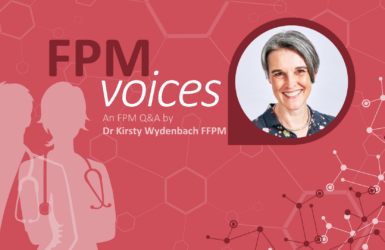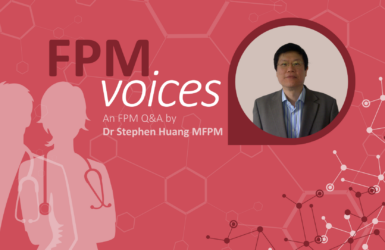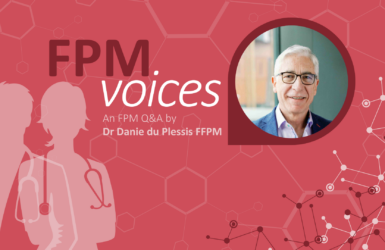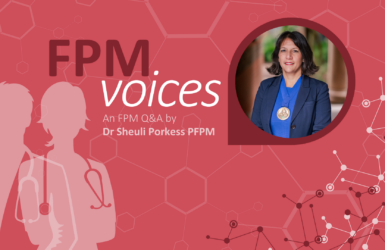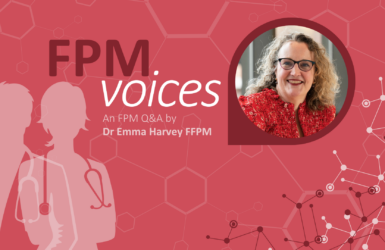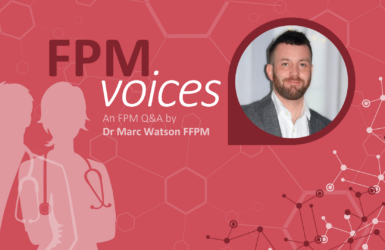Dr Kirsty Wydenbach FFPM
An FPM Voices Q&A
Posted on: Thursday 3 April 2025
Author: Dr Kirsty Wydenbach
This Q&A has been prepared by Dr Kirsty Wydenbach FFPM.

FPM Voices is a Q&A interview series that shines a spotlight on the careers and insights of senior and influential pharmaceutical physicians. Through these conversations, we aim to provide colleagues with a deeper understanding of the opportunities, challenges, and rewards of pharmaceutical medicine.
Each interview explores personal career journeys, key lessons learned, and the role that the Faculty of Pharmaceutical Medicine (FPM) has played in shaping professional growth.
What first sparked your interest in pharmaceutical medicine, and what has kept you passionate about the field?
When I first started to consider leaving clinical medicine I had some pivotal discussions with colleagues who had already made the leap into the pharmaceutical industry, and it was spending time at a ‘Day in the Life’ event that really secured that conviction to make the move. I was also incredibly lucky that my first role was extremely diverse and allowed me to get experience across almost all fields before settling into regulatory affairs. The variety in what I do is key to staying passionate, as well as those small moments that are a true highlight: for me it was having the privilege to be involved in reviewing the first clinical trials for COVID vaccines then a year later being able to receive one, knowing all that had to be accomplished in between.
What does FPM represent to you, both professionally and personally?
When I left the MHRA in 2022, FPM was a key point for focusing my future development in the industry. It provides so much information to assist you regardless of the stage of your career, and the opportunities to engage with fellow pharmaceutical physicians are exciting. The support through the revalidation programme is also very reassuring, particularly when you are new to this area of medicine.
In what ways have you helped champion FPM’s mission for the next generation of pharmaceutical physicians?
I have been the chair of the Clinical Trial Science and Regulations Expert Group for several years now, and our members have contributed to several blogs on topics such as the UK research environment and more specifically on impacts to FPM members. The group is now at full membership capacity which is fantastic to allow us to support other expert groups and the wider Faculty in the future. I also have an interest in education and have presented at an FPM Education Day and FPM’s Annual Symposium – all great opportunities to share and learn from colleagues.
What’s a recent innovation or lesson—whether from colleagues, patients, or scientific advancements—that has inspired or changed your perspective?
I lecture Masters students at Kings College London, and the students have taught me a lot. They are right at the start of their careers and it has been humbling to hear their questions on how to progress to the next step. They have definitely taught me the value of seeking advice from others on aspects outside of the basic knowledge needed for a role, more about top tips based on my own experiences. It has inspired me to become more involved in career development and I am about to undertake the training to be an Educational Supervisor for PMST.
Throughout your career, what has been your greatest challenge, and how do you stay resilient in the face of setbacks?
The greatest challenge has to be work-life balance. In clinical medicine the shifts and hours can be exhausting and certainly don’t always align with having a family. Pharmaceutical medicine can also have its moments, no more so than when I was at the MHRA during the pandemic. I have an incredibly supportive family, and colleagues in all my jobs have been supportive both on a work and personal level. I think honesty is important to foster these relationships and have that support when times are tough.
How would you describe what you do to people who haven’t heard of pharmaceutical medicine?
When I say to those who don’t know me that I’m a doctor the next question is invariably ‘Are you a GP?’. Trying to then explain not only do I no longer work in the NHS but I work for the pharmaceutical industry, you can see them thinking of the self interest and greed that is so often portrayed. I hope I have managed to change at least a few minds in that respect when I explain I am involved in developing amazing new drugs to the benefit of patients.
If you weren’t a doctor, what completely different career would you want to try?
The best advice I ever had was ‘If you can make your hobby your job then you won’t go far wrong’, so on that premise I would become a gardener. I have no artistic ability, so grand garden design is probably not a possibility, but nothing beats the satisfaction of growing your own vegetables and flowers or a neatly weeded flower bed!


